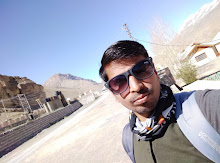Humans are social beings and have always lived together, grouped initially by family connection and then by other ties or interests. Such grouping into communities is important for every human being. They give a sense of belonging: a human environment in which to express oneself, interact and grow. Ultimately, all of us belong to the global community.
A
homogeneous group that is able to develop an awareness that goes beyond its
more obvious homogeneity is able to extend its own boundaries and include other
people without losing its identity. A strong and stable society is not one that
seeks to define itself by identifying the ways in which it is different from
others, by insisting on uniformity, but one that is willing and able to
accommodate diversity within a common framework of the larger realities of
life. The worth of the individual is one such reality. Awareness of self-worth
leads naturally to self-respect and respect for others is born from respect for
the self.
Any
community that is to survive and flourish must respond to the needs of its
members as human beings and seek to harmonise personal interests and those of
the community as a whole. A community which fails to take account of human
nature will eventually defeat its own purposes and, rather than integration,
will suffer disintegration.
A
community must also care for its natural environment and recognise its
interdependency with other communities. Society is like a mosiac with the
different patterns in its design being communities of varied culture, history,
traditions and philosophy. Each segment has its own beauty but much of the
beauty is derived from its connection to and relationship with the larger whole
of which it is a part.
To
live in society is to accept the moral obligation of at least being conscious
that society comprises other human beings with rights and desires that must be
acknowledged and accommodated, as far as possible. Members of any society will
vary in their understanding, attitude, and perception of life and ways of
living but must develop and observe some norms, patterns and commonly-held
values in their relationships and interactions with another. Social integration
requires the appreciation rather than the elimination of differences.
Integration
must be on the basis of free will and respect for others rather than being
imposed in suppression of a sense of discrimination, injustice and difference.
Indeed, some differences of opinion or policy are inevitable in a democratic
society which respects freedom of thought and so the fabric of which society is
built must be at once strong, accommodating and flexible.
Just
as respect is required from those who have previously participated in others’
exclusion or deprivation so also those who feel marginalized, disadvantaged or
discriminated against must develop a lucid awareness of their self-respect and
rights in order to remove any consciousness of unworthiness, or being a victim
or outcast, and reassert their dignity.
The
growth and development of moral values is not quantifiable in the same way as
productivity or a national economy but these values are necessary for the
maintenance of the social sub-structure. However insignificant it may seem,
even the smallest of courtesies or expressions of civility can make life easier
and pleasanter for others, as well as contributing to the smooth functioning of
society overall.
You are whole heartedly welcome to
Prajapita Brahma Kumaris Ishwariya Vishwa Vidyalaya







